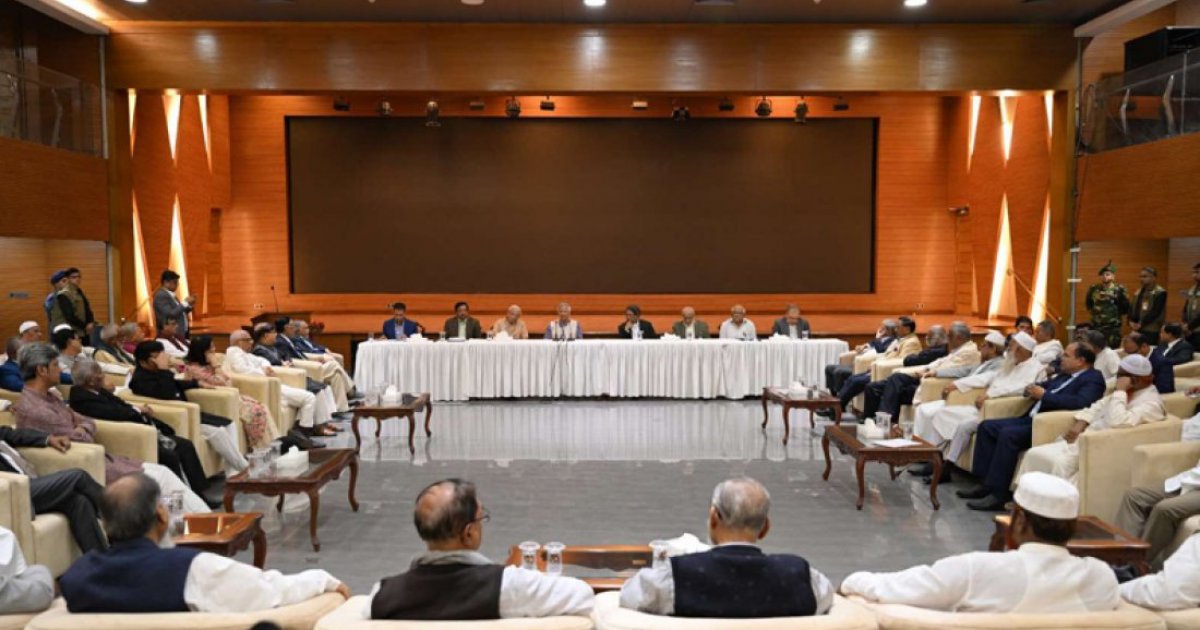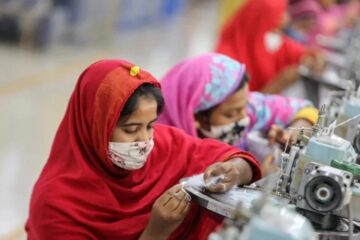Amid heated discussions, the interim government, led by Chief Adviser Professor Muhammad Yunus, on Monday shifted responsibility to the politicians’ camp to reach a consensus on holding a referendum to implement the July Charter, warning that failure to do so would compel the government to chart its own course.
Following a special meeting of the Advisory Council, chaired by Chief Adviser Professor Muhammad Yunus, Law Adviser Professor Dr Asif Nazrul announced that anti-fascist political parties had been given a seven-day timeframe to agree on the timing and content of the proposed referendum.
“The Advisory Council today urged the long-standing allied political parties of the anti-fascist movement to hold internal discussions promptly and provide unified guidance to the government within the next seven days, if possible,” Dr Nazrul told reporters at Karabi Hall in the Chief Adviser’s Office.
The law adviser emphasized that this was not an ultimatum but an appeal to parties that had jointly fought for reform.
“They marched together for years, and we expect them to come together again to decide this issue,” he said, adding that if no agreement was reached within the deadline, the government would “take its own course.”
The meeting focused on three key issues: finalizing the July National Charter (constitutional amendment) Order as proposed by the National Consensus Commission, organizing a national referendum, and determining its content.
While expressing gratitude to the Consensus Commission and all political parties for their efforts in reaching consensus on key reform issues, the council noted with concern the differences that have emerged among political parties regarding the timing and substance of the referendum.
The National Consensus Commission had earlier proposed holding the referendum on or before election day, but major parties—including the BNP, Jamaat-e-Islami, and the National Citizen Party—have each demanded different timelines, creating an impasse.
“Despite prolonged discussions in the Consensus Commission, differences emerged among political parties over when the referendum would be held and what its content would be,” Dr Nazrul explained.
The law adviser stressed that the current circumstances left no room for delay and noted that the government had previously held several meetings with political parties, but it was now time for them to take the initiative and submit joint recommendations.
The interim government reaffirmed its commitment to holding the next parliamentary elections in the first half of February 2026, despite ongoing debates over constitutional reforms.
“The meeting further stressed that there is no room for delay under the current circumstances and reiterated the government’s firm commitment to hold the next national parliamentary election in the first half of February 2026,” Dr Nazrul said.
He added that a coordinated decision from the political parties would pave the way for the government to reach a final decision on holding the referendum and implementing the July Charter reforms.
Power, Energy and Mineral Resources Adviser Muhammad Fouzul Kabir Khan, Housing and Public Works Adviser Adilur Rahman Khan, and the Chief Adviser’s Press Secretary Shafiqul Alam were present at the briefing.
Jamaat-e-Islami welcomed the Advisory Council’s proposal for political parties to hold discussions among themselves to resolve differences over the recommendations for implementing the July National Charter. Party’s Nayeb-e-Ameer Syed Abdullah Muhammad Taher expressed concern that the discussions might lack a “referee.”
Abdullah Muhammad Taher said: “We welcome the decision made by the Advisory Council. But I would like to add one point — if the Advisory Council thinks that their responsibility is over and they will no longer take any initiative, leaving it entirely to the political parties, then there might be a lack of a referee in this process. That’s why I’m saying, we will also try our part, but I hope that the chief adviser will play the role of a referee here, as he did before.”
He made these remarks on Monday in response to a question from journalists during a joint press conference of eight like-minded parties, held immediately after the interim government’s Advisory Council press briefing. The event took place at the central office of Bangladesh Khelafat Majlish in Paltan, Dhaka.
However, at a press conference in response to the government’s call, National Citizen Party (NCP) Member Secretary Akhtar Hossain urged the government to implement the July Charter through the swift issuance of orders.
“The government is trying to save itself by pushing this issue onto political parties. A tendency to obstruct reforms and sabotage elections has been observed, which is very disappointing. If the government fails to implement the charter, it will be a betrayal of the blood of the martyrs,” said Akhtar.
Most other major political parties, including the BNP, had not issued any clear response to his call as of last night.



